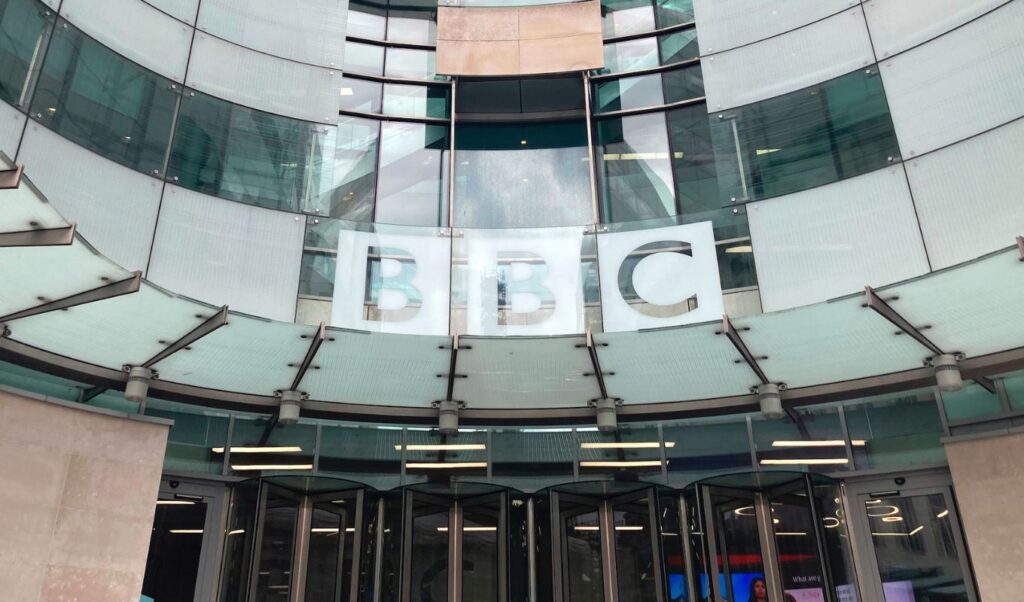The director-general of BBC, Tim Davie, and the head of news, Deborah Turness, have submitted their resignations following fierce criticism that a BBC Panorama documentary misled audiences by editing a speech from US President Donald Trump.
Read: BBC misled public in Gaza documentary – Forced to issue public apology
News of the resignations followed Telegraph revelations about a leaked internal BBC memo, according to which Panorama had spliced together two clips from different parts of Trump’s speech, creating the impression that he explicitly encouraged the Capitol invasion in January 2021.
BBC: The revelations about editing in Panorama show
Recently, the Daily Telegraph reported for days on an internal memo written by a former ethics advisor to the broadcaster, documenting a series of errors, including how a Trump speech from January 6, 2021 was edited.
The document suggested that the flagship Panorama program had edited together two parts of Trump’s speech, showing him encouraging riots at Congress in January 2021.
In this documentary, Trump appeared to tell his supporters that “we’re going to walk to the Capitol” and they should “fight like hell,” a comment he made in a different part of his speech.
The memo was reportedly compiled by Michael Prescott, former independent external advisor to BBC’s editorial standards committee, who had left his position in June.
BBC director-general Tim Davie’s resignation statement
Tim Davie, in his statement, explained the reasons for this decision, while noting he would remain in position until his succession is arranged to ensure a smooth transition. In detail, he states:
“I wanted to let you know that I have decided to leave the BBC after 20 years. This decision is mine alone, and I remain deeply grateful to the chairman and board for their unwavering and unanimous support throughout my tenure — including in recent days.
I am in discussions with the board about the exact timing of my departure to ensure a smooth transition to a new successor within the coming months.
My primary concern is the intense personal and professional demands that accompany this position for so many years, in such tense times, combined with the fact that I want to give my successor time to contribute to planning the BBC’s next Charter.
In these increasingly polarized times, the BBC has unique value and represents the best part of our society. It helps keep the United Kingdom a place of kindness, tolerance and curiosity. Like all public organizations, the BBC is not perfect — we must be open, transparent and accountable. While not the only reason, the current discussion around BBC News inevitably contributed to my decision.
Overall, the BBC performs well, but some mistakes have been made and, as director-general, I must take ultimate responsibility.”
“Sad day for BBC,” says network chairman
BBC Chairman Samir Shah expressed his “deep gratitude” to Tim Davie and Deborah Turness for their “unwavering dedication and years of service to the BBC” following the announcement of their resignations.
“This is a sad day for the BBC,” Shah said, emphasizing he understands the pressure — both personal and professional — that led Davie to his decision to leave.
“The entire board respects the decision and the reasons behind it,” he added, characterizing Davie as a “dedicated and inspired leader” who has “achieved much” during his tenure.
Culture minister’s post about Tim Davie
UK Culture Secretary Lisa Nandy thanked Tim Davie “for his years of service to public broadcasting.”
In a post on platform X (formerly Twitter), she wrote:
“He led the BBC through a period of significant change and helped the organization face the challenges of recent years.”
Nandy added that “now more than ever, the need for reliable news and quality programming is essential to our democratic and cultural life, as well as our position in the world.”
She concluded by saying the “government will support the board as it manages this transition and will ensure the upcoming Charter review serves as a catalyst to help the BBC adapt to the new era and maintain its central role in public life for decades to come.”




